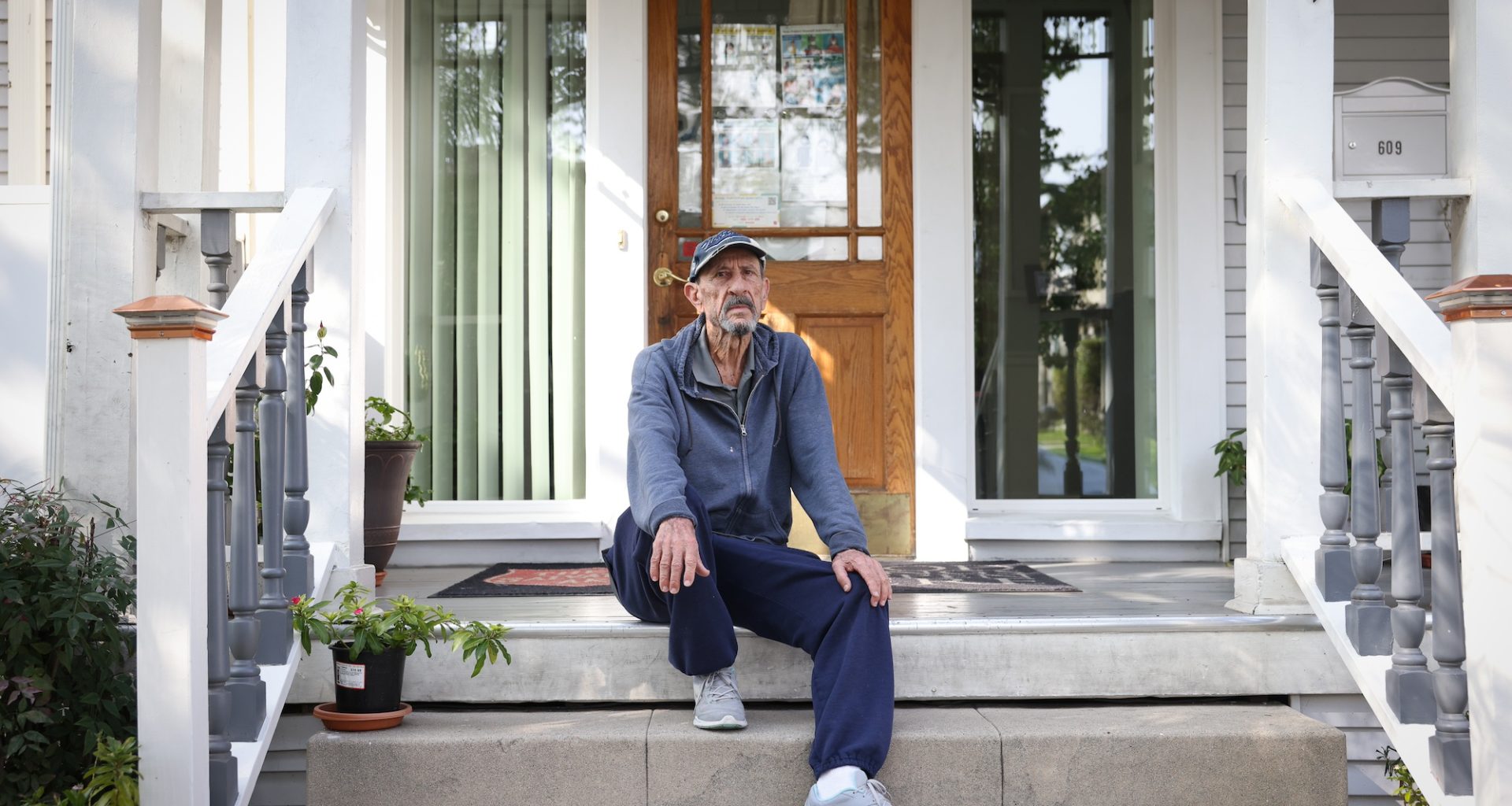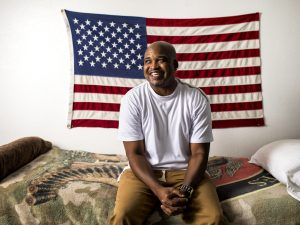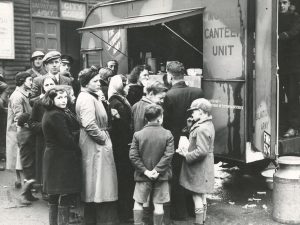Partnering with the Department of Mental Health, the Glendale (California) Salvation Army provides interim housing for seniors.
It was early, before 9 a.m., when I arrived at the picture-perfect Victorian house in Glendale, California. A man was sweeping the sidewalk outside the entrance. I wondered, who is this? Am I in the right place?
It was Ambrosio Lozano, a guest at the Glendale Salvation Army Booth Home—exactly the place I had come to see. For Lozano, 75, the Booth Home is home and he treats it as such. He’s lived there for two and a half years.
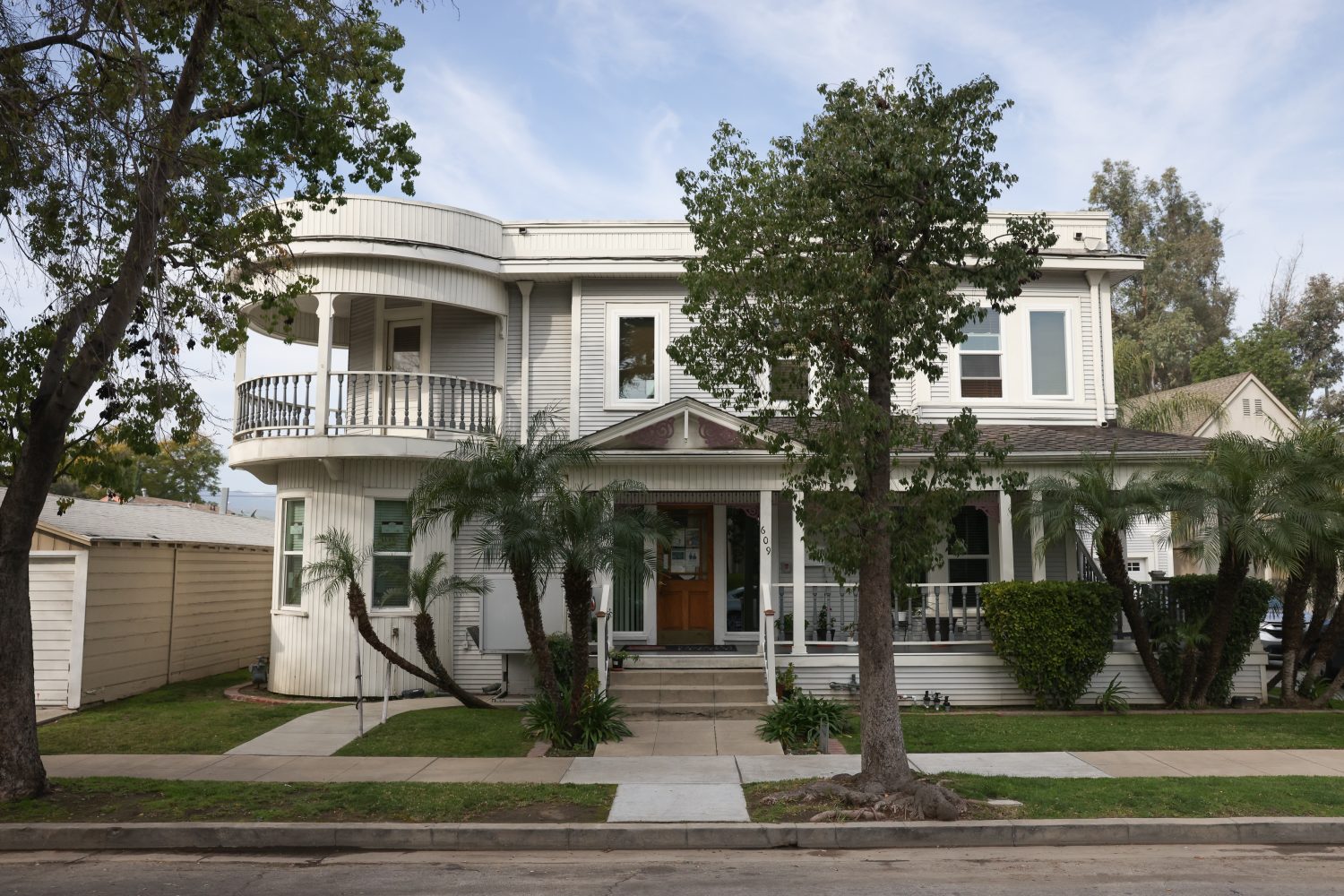
“When you see a clean place, it feels good,” he said. “But not if you see it’s all messy with papers and leaves.”
Cleaning is one way Lozano gives back to Booth Home, which provides interim housing for 15 unhoused seniors—men and women—while they work with case managers to secure permanent housing.
Glendale Corps Officer Captain Kelly Berggren said most guests find permanent housing after nine months to a year. Sometimes the process takes longer, as it is for Lozano, because of the lack of affordable housing. Fortunately for these guests, the Booth Home doesn’t limit how long someone can stay.
Clients come to Booth Home through the Los Angeles Department of Mental Health and its interim housing program (IHP). In the past, the house sheltered single mothers and was the first shelter for families experiencing homelessness in the city.
In 2019, when Berggren and his wife, Natalia, came to the corps, the Department of Mental Health approached them about housing seniors. Berggren said the department had recognized a growing need for housing seniors and was willing to partner with them and provide funding. The transition took place.
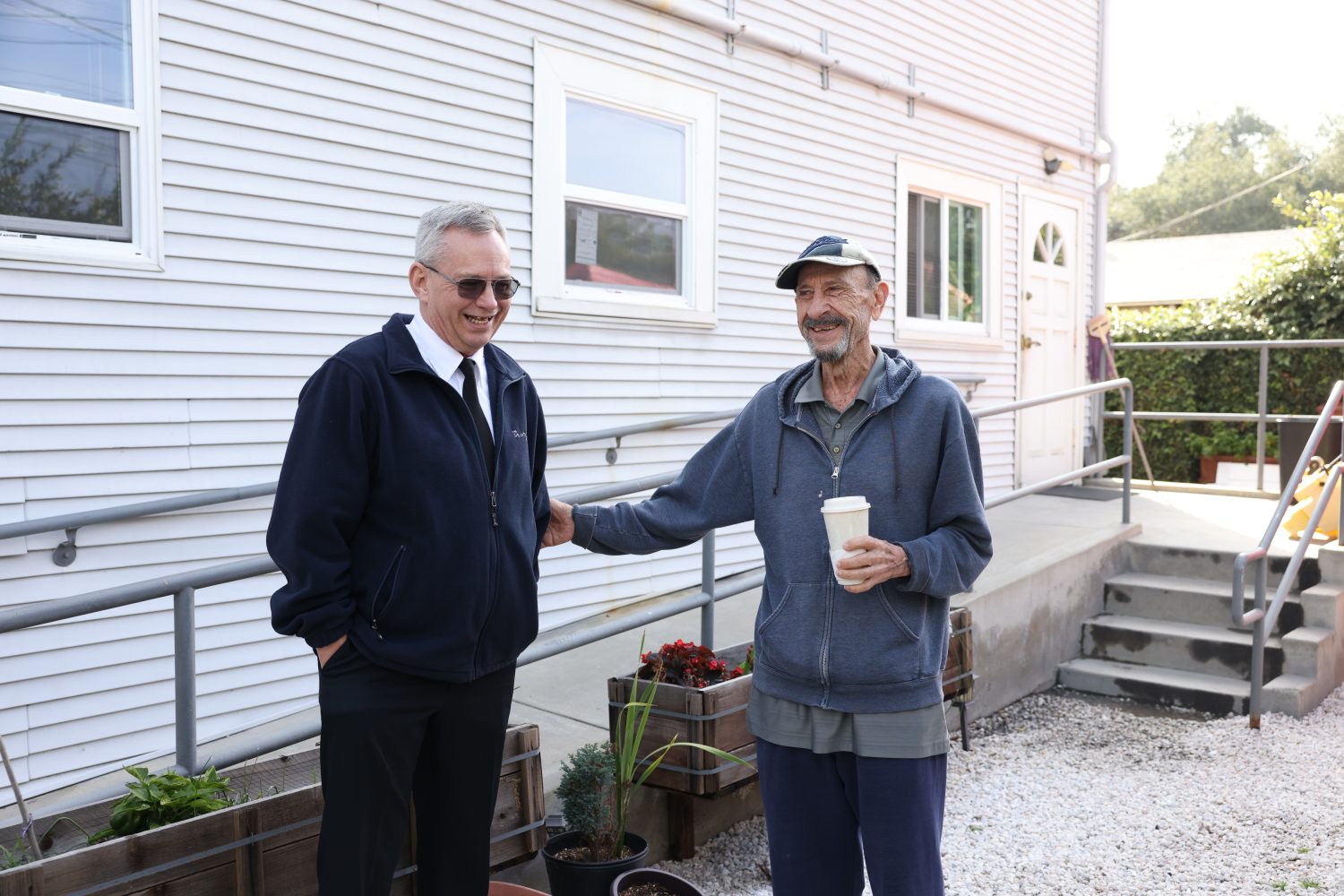
Since then, Booth Home has stayed full. When there’s a vacancy, the IHP refers clients, who must be 60 or older with a mental health diagnosis. Berggren said the seniors often have depression and many have difficulty coping with their emotions.
“A lot of these people come to us and they’ve been living on the street or in their cars,” he said. “But they’ve all got a personality. Everybody’s got their own story. There is certainly no specific reason why people end up homeless.”
Lozano’s story centers around his adult son, who he said had alcoholism and was experiencing homelessness along the Los Angeles River. Concerned for his son’s safety, he joined him, looking to protect him. When Lozano became seriously ill, paramedics transported him to the hospital. Eventually, his path led to Booth Home.
“Number one, it’s better than being on the street,” Lozano said. “Here they give me a chance to have a shower, a room, a place to sleep. And I feel like after almost dying, I can be helpful. I want to help. I have to do something.”
Lozano helps with house cleaning, which takes place three times a day. He gets up at 4:30 a.m. to be ready for the first cleaning at 5 a.m. He also maintains the outside landscaping and grows vegetables and flowering plants in the backyard.
“I believe that you make your own happiness. Don’t worry about the past; don’t worry about the future. Live today.”
Ambrosio Lozano
It’s not just the curb appeal he cares about, though. It’s the people.
“When they come, they look very depressed,” he said. “I’m always playing around, singing, saying, ‘Come on—do this, do that,’ trying to let them know life is beautiful…From the time you put one foot inside the door here, we are family.”
For the Booth Home family, the home, built in 1896, boasts a TV room and the backyard garden. Each day, a continental breakfast is served along with hot meals for lunch and dinner, provided by the Glendale Corps kitchen.
Guests share a bedroom, two per room, with women on the first floor and men on the second. Staff members are on-site 24/7, and many of them attend the Glendale Corps and transport guests to the corps for church and other activities.
And the guests have the freedom to come and go—Berggren said many of them have vehicles. They can go about their activities during the day and evening, as long as they respect the 10 p.m. curfew. Since Booth Home is a sober residence, when someone is asked to leave, Berggren it’s usually for bringing alcohol or drugs on the property.
“Some of the clients do pretty well going out in the community,” Berggren said. “Some people don’t really like to leave Booth Home. It’s their comfort place.”
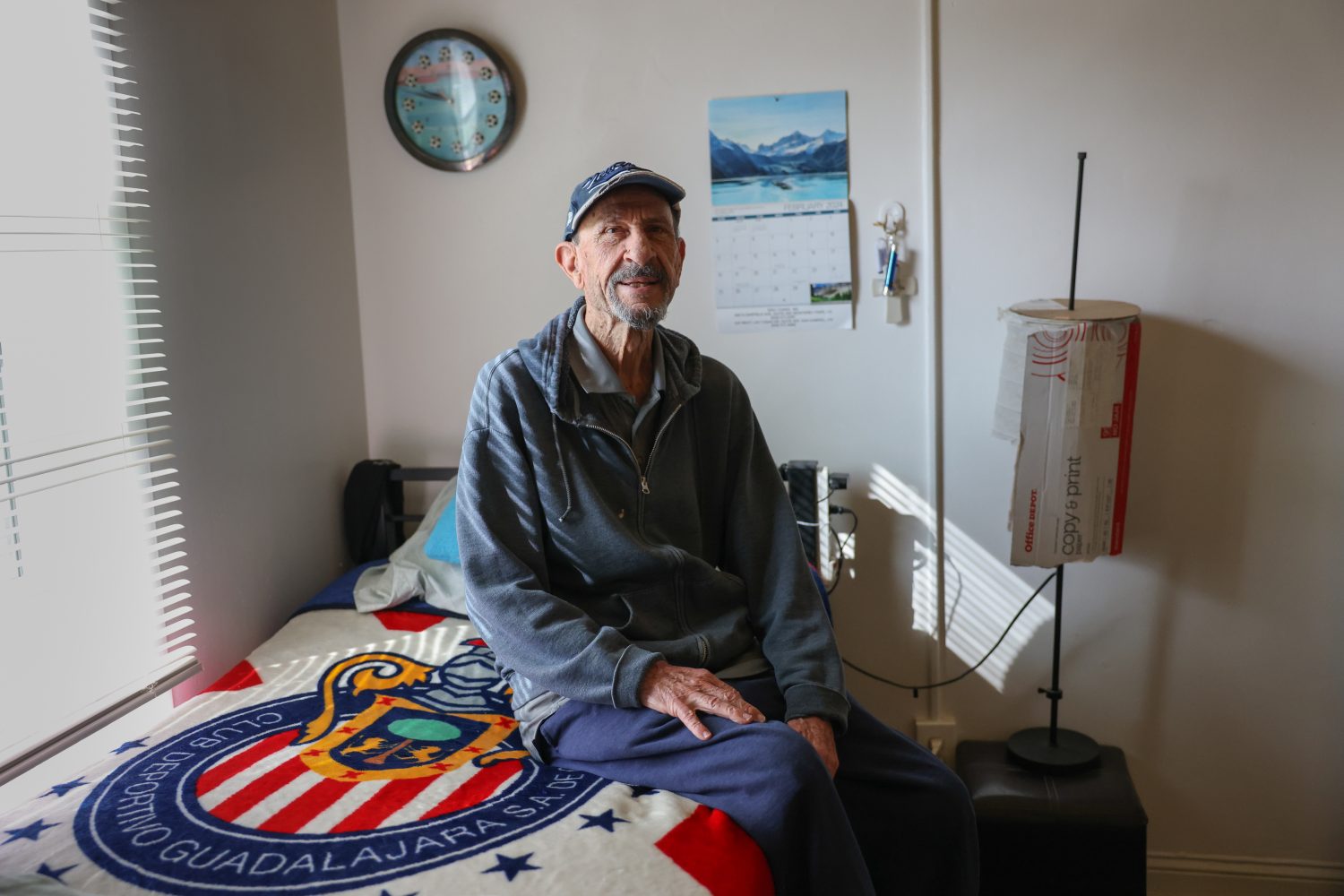
While Lozano is comfortable at Booth Home, he goes out into the community. After doing his daily exercises in the morning, he walks to a nearby 7-11 for a newspaper and then buys fruit at the 99 Cents Only Store. He returns to help out wherever he’s needed.
Although he’s looking for permanent housing, he said he’s content.
“I believe that you make your own happiness,” he said. “Don’t worry about the past; don’t worry about the future. Live today.”
Berggren said he can appreciate the struggles the seniors face, as he’s getting closer to their age.
“One great thing is that we are able to house about 70 percent of those who come to us,” he said. “There’s a lot of money being put into mental health right now, and a lot of places going up to house people. That’s the good part about what we’re doing here—there’s a light at the end of the tunnel for the clients that we serve.”
Do Good:
- See how The Salvation Army fights homelessness.
- Did you know The Salvation Army served some 24 million Americans last year fighting hunger, homelessness, substance abuse and more? Where can you help? Take our quiz to find your cause and learn how you can join in today.








